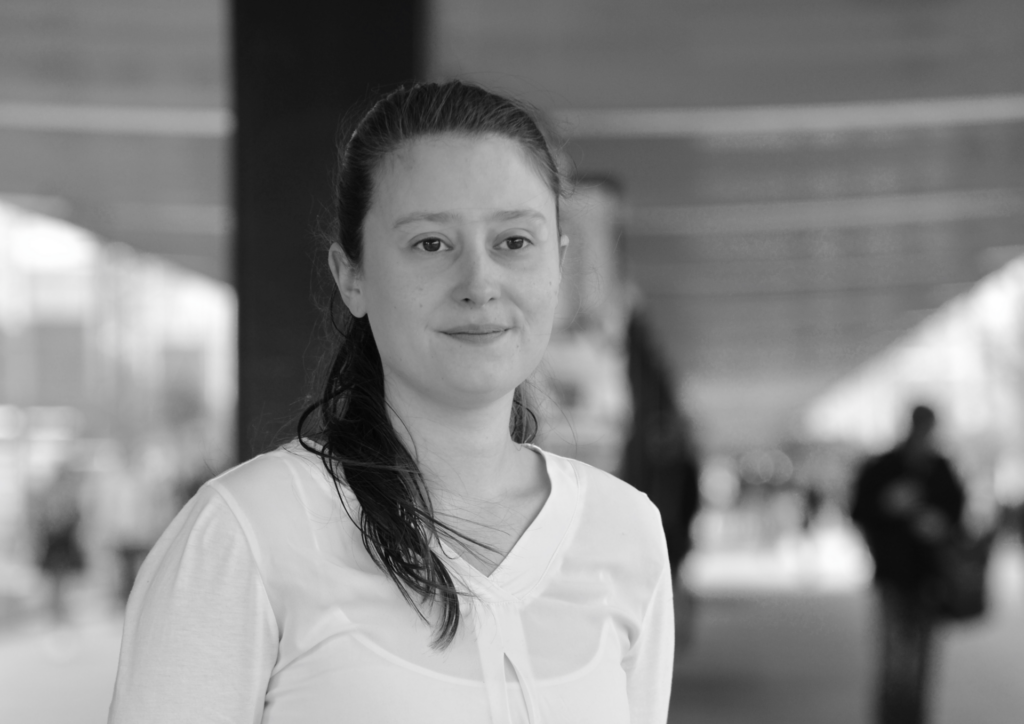
1968 and 1969 as Epochal Years. On the History and Aesthetics of Argentinean and Mexican Documentary Films and Social Movements
- PhD project
“The camera is the inexhaustible expropriator of image-weapons; the projector, a gun that can shoot 24 frames per second.“
The 1960s have gone down in history not only in Latin America as the years of the so-called social movements and the political struggle of left-wing groups. It was about political participation and civil rights, but also about social justice. In European and Western countries, as well as in countries of the so-called “Third World”, the ideas outlined above developed and motivated people to take a political stand. Rallies and texts played an important role in this, as did films, something that has long been overlooked by researchers. Mara Fritzsche’s dissertation project focuses on the participation of Argentinian and Mexican filmmakers in the protests towards the end of the 1960s and their involvement in the social movements of their countries. The years 1968 and 1969 prove to be particularly significant.
The origins of these movements go back to the 1950s: inspired by the Cuban Revolution of 1959, the idea of revolutionary change spread throughout Latin America, which was characterized by extreme inequality. Exposing social grievances or making them visible in the literal sense also increasingly became a concern of Latin American filmmakers, who saw themselves as actors in the political struggle and made their own contribution to social transformation.
Tire dié (1958/1960) by Argentinian director Fernando Birri is regarded as the first cinematic record of social inequality in Latin America and can be considered a groundbreaking film. By the time Fernando Solanas and Octavio Getino wrote their manifesto Towards a Third Cinema (1969), Latin American films were no longer content to take on a purely illustrative function in the political struggle. Rather, during the period covered by this dissertation, a new generation of filmmakers worldwide shared the view that films and the cameras that shoot them could be “weapons” in the revolutionary struggle. The dissertation thus examines a hitherto neglected connection between Latin American filmmaking and political engagement, which may have influenced each other. The dissertation focuses on how exactly this took place and what consequences this had for our understanding of the so-called new Latin American film and the social movements of the years under consideration here, paying particular attention to the aesthetic strategies of the films of this period and this context.
The dissertation focuses on the student protests in Mexico, which culminated on October 2, 1968 with the events surrounding the “Tlatelolco Massacre”, as well as the worker and student protests that took place in Córdoba, Argentina, in 1969. They are considered here as core events of social mobilization in these countries and the hitherto overlooked role of filmmakers is examined. Of significance here is the fact that the Mexican student protests were accompanied by film students from the Universidad Nacional Autónoma de México (UNAM). The film El Grito (1968) by Leobardo López Arretche, among others, was edited from this material. Films were also made around the Cordobazo, including Argentina, mayo de 1969: los caminos de la liberación (1969) by the Grupo Realizadores de Mayo, who appeared as a collective.
Research stays in the USA, Mexico and Argentina from September to December of 2019 made it possible, among other things, to determine the film corpus and to view the above-mentioned films as well as others relevant to the dissertation project.
References:
- Encuentro con Fernando Birri, aus: John Hay Library, Brown University, Fernando Birri Archive, Box 1/Folder 3.
- Getino, Octavio/ Solanas, Fernando E.: Towards a Third Cinema [erstmals erschienen auf Spanisch „Hacia un tercer cine“, in Tricontinental (Kuba) 13 (1969], in: MacKenzie, Scott (Hrsg.): Film Manifestos Global Cinema Cultures, University of California Press, California 2014.
- Schroeder Rodríguez, Paul A.: Latin American Cinema. A Comparative History, University of California Press 2016.
- Almeida, Paul: The Social Movements. Structure of Collective Mobilization, University of California Press, California 2019.

